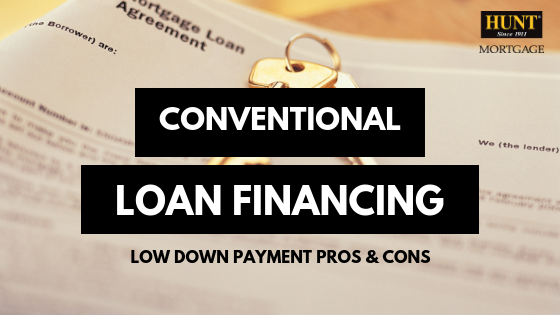Navigating the mortgage process can feel overwhelming, but breaking it down into steps can make…

Conventional Loan Financing: Low Down Payment Pros & Cons
For homebuyers, the decision of how much money to use towards a down payment can be very difficult. The right amount for buyers depends on their particular financial situation and personal preference.
The Bad
The downside of a low down payment, regardless of your loan program, is that you will typically pay higher interest rates and you will have to pay for mortgage insurance.
For example, there are loan programs that allow a single family home to be purchased with as little as 3.5% of the purchase price as a down payment. However, there is an additional cost for lower down payments on conventional loans: Mortgage Insurance.
Mortgage Insurance, referred to as PMI (private mortgage insurance) is required when your conventional loan amount is greater than 80% of the purchase price (practical translation: down payment is less than 20%). Mortgage Insurance is calculated against the loan amount, so the lower the down payment, the higher the insurance premium.
The Good
Though the disadvantages of low down payments seem serious, there are also advantages.
If you don’t have the liquidity to place a higher down payment then loan programs allowing for a low down payment provide you the ability to become a homeowner sooner than might otherwise be possible.
If you do have sufficient funds for a higher down payment it still might be in your best interest to retain some of those funds and maintain your liquidity. Some buyers are able to invest their funds and see a higher rate of return. Your property’s appreciation will be the same regardless of your down payment. The rate of return you could make on your funds might prove great enough to offset completely the cost of Mortgage Insurance.
Additionally with your mortgage loan interest generally being tax deductible this can add to the benefit of having a higher loan amount. This is something you should discuss with a financial or tax advisor.
Take time to weigh your options and assess what choice is best for you. Reach out to your Mortgage Consultant to find out more information and what mortgage options you have available to you.

